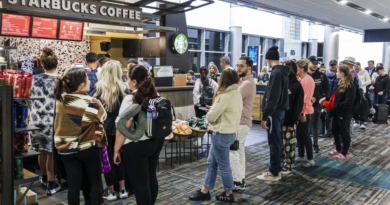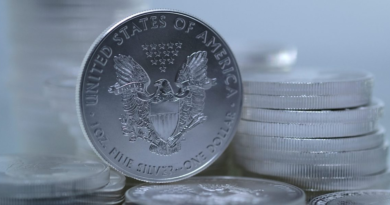Larry Summers: Fed should hike interest rates at least once more to control inflation and an economy that's still growing to fast
Former Treasury Secretary Lawrence Summers said the Federal Reserve probably needs to raise interest rates at least once more, and cautioned that insufficient attention is being paid to the effects of US fiscal deficits.
“My best guess would be that we’re going to need more interest-rate increasing” by the Fed, Summers said on Bloomberg Television’s Wall Street Week with David Westin. There’s not much economic slowing “in the pipeline” at this point, with some estimates suggesting a growth rate in excess of 5% this quarter, he said.
Summers applauded Fed Chair Jerome Powell’s speech Friday in Jackson Hole, Wyoming, where he signaled the central bank is ready to keep raising rates as needed to ensure that inflation is sustainably coming down toward policymakers’ 2% target. He added that Powell’s remarks suggest the Fed is open to the possibility that the neutral interest rate — the level that neither stimulates nor restricts the economy — could be higher than it’s been.
The Fed chief noted in his speech that the current rate setting, with an upper-bound target of 5.5%, is higher than “mainstream” estimates of neutral. But he said the neutral rate can’t be identified with certainty, leaving doubt about “the precise level of monetary policy restraint.”
While not explicitly recognizing the neutral rate is higher, Powell “noted that growth was much faster than many people expected, given how high interest rates have been pushed,” said Summers, a Harvard University professor and paid contributor to Bloomberg TV. “I think it will reinforce the growing sense in markets” that the Fed is now regaining its inflation-fighting credibility, he said.
Treasury yields have climbed in recent weeks as investors reacted to resilient economic data and increased federal government borrowing needs. Ten-year yields this week reached their highest since 2007. Interest-rate futures show scaled-back expectations for the magnitude of Fed cuts next year.
“My guess is that you may see the fed funds rate have to go up once, or even more than that, over the next few few months,” Summers said, referring to the Fed’s benchmark rate.
Summers also said he would have preferred to see Powell do more to recognize the implications of “the nation’s problematic fiscal posture” for monetary policy.
“Substantially enlarged government budget deficits mean substantially more absorption of saving” and a boost to demand, he said. “And all of that means that the neutral interest rate is increased — and is increased now, and in the future.”
The US Treasury said earlier this month it expects to borrow a net $1 trillion this quarter, with prospects for increasing issuance of longer-dated securities in coming quarters.
Summers highlighted that this increase in supply is occurring alongside the Fed’s continuing shrinkage of its own holdings of Treasuries, via its so-called quantitative tightening program. Another factor is the potential for diminished foreign demand for US government debt, he said, especially from Japan, which is now considering its own potential shift away from monetary easing.
The former Treasury chief reiterated his view that “I’d expect the 10-year rate to settle someplace above its current level over the next few years.”



